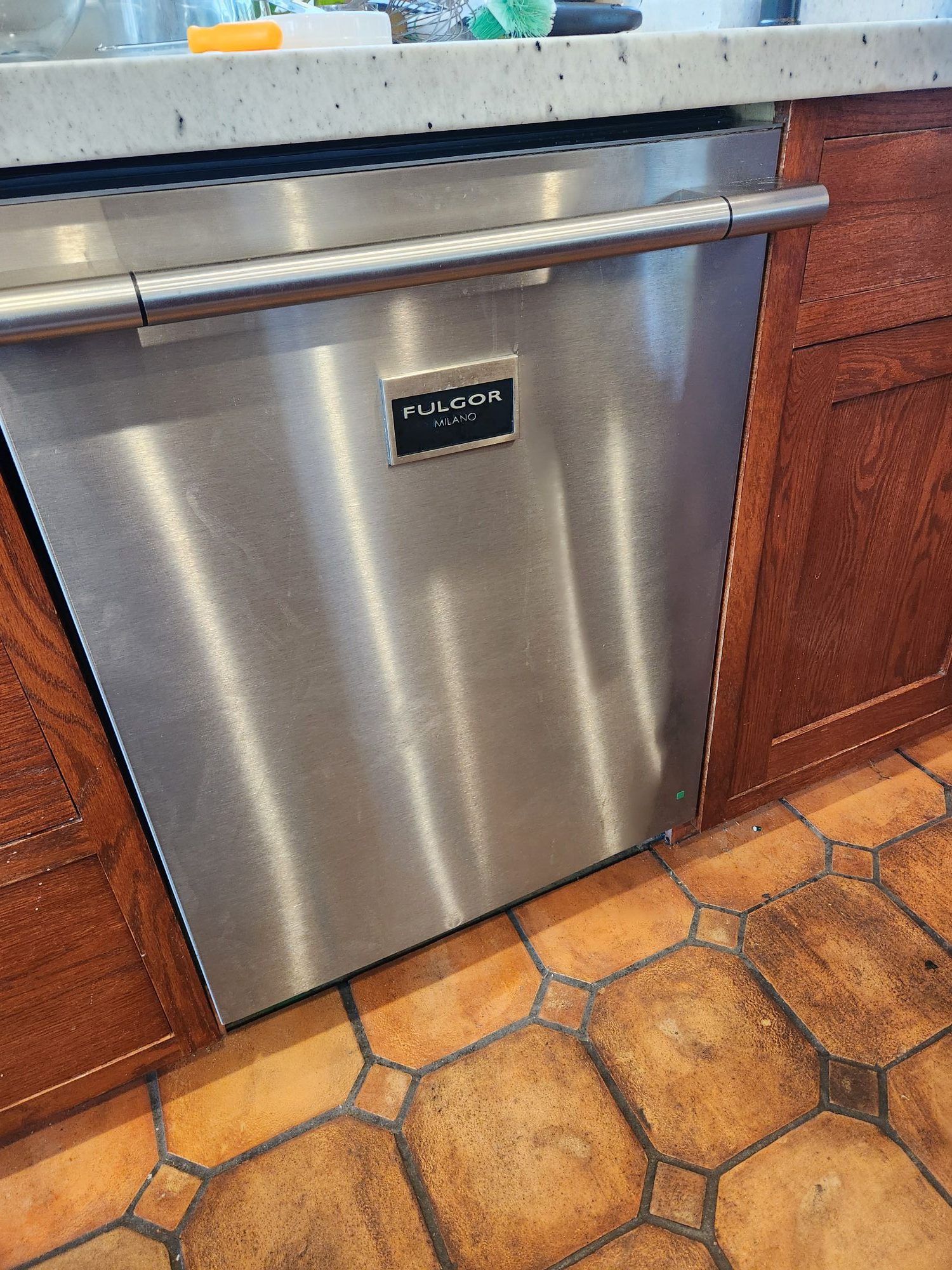Dishwashers are essential appliances in many homes, making daily chores easier and more efficient. However, like all appliances, dishwashers require proper maintenance to function at their best. Regular maintenance not only ensures optimal performance but also extends the life of the machine and reduces the likelihood of costly repairs. If you’ve ever wondered why maintaining your dishwasher is so important, here’s a detailed guide on the benefits of regular maintenance.
1. Prolonged Lifespan of the Dishwasher
⠀
Regular maintenance plays a crucial role in extending the life of your dishwasher. Without proper care, a dishwasher can experience wear and tear that reduces its lifespan. Routine checks can identify potential issues early on, preventing them from escalating into major problems that may necessitate expensive repairs or even replacement.
⠀
For instance, inspecting the spray arms, unclogging filters, and removing buildup from the interior of the machine help to ensure that all components function smoothly. These seemingly minor maintenance tasks can keep your dishwasher running efficiently for years to come, ensuring you get the most out of your investment.
⠀
2. Improved Cleaning Performance
⠀
Over time, dishwashers can lose their cleaning efficiency due to blockages, scale buildup, or wear on critical components like the spray arms or filters. Regular maintenance helps ensure that the machine continues to deliver excellent cleaning performance. If your dishwasher isn’t maintained properly, food particles and debris can get trapped in filters or spray arms, which reduces water flow and cleaning effectiveness.
⠀
Cleaning the filter regularly, removing mineral deposits, and inspecting the water supply are all tasks that can be done during routine maintenance. By keeping these parts clean and functional, your dishwasher can continue to perform optimally, ensuring that your dishes come out spotless every time.
⠀
3. Reduction in Energy and Water Consumption
⠀
An efficiently running dishwasher not only cleans better but also uses less energy and water. Dishwashers with clogged filters or malfunctioning components may require longer cycles or more water to achieve the same level of cleanliness. This leads to higher energy consumption and utility bills.
⠀
Regular maintenance ensures that your dishwasher operates at peak efficiency. Tasks like cleaning the filters and removing limescale buildup prevent overworking the machine, allowing it to run on its intended settings. A well-maintained dishwasher will use the right amount of energy and water, reducing environmental impact and saving you money in the long run.
⠀
4. Prevention of Costly Repairs
⠀
One of the most compelling reasons for regular maintenance is to avoid unexpected and costly repairs. Small issues, when left unchecked, can escalate into significant problems. For instance, a small leak due to a worn-out gasket can lead to water damage in your kitchen if it isn’t repaired early.
⠀
By scheduling regular check-ups for your dishwasher, you can spot these minor problems before they turn into expensive repairs. Cleaning out the filter, inspecting the door seals, and checking for leaks are all simple tasks that can help you avoid expensive breakdowns.
⠀
5. Reduction of Odors
Dishwashers are prone to developing unpleasant odors over time due to the accumulation of food particles, grease, and soap scum. These residues can create a breeding ground for mold and mildew, resulting in foul smells that can transfer to your dishes.
Regular maintenance can prevent these odors. Cleaning the filters, wiping down the interior, and running a cleaning cycle with vinegar or specialized cleaning solutions will keep your dishwasher fresh and odor-free. This not only keeps your kitchen smelling pleasant but also ensures that your dishes are hygienically clean.
6. Better Hygiene
⠀
Dishwashers are meant to sanitize dishes, but if not maintained properly, they can harbor bacteria and mold. Regular cleaning and maintenance ensure that your dishwasher remains a hygienic environment for washing your dishes. Bacteria thrive in the damp, warm conditions inside the dishwasher, especially if food particles are left behind.
⠀
By cleaning your dishwasher regularly, including the filters and interior surfaces, you can keep bacteria and mold at bay. Running a cleaning cycle with vinegar or a dishwasher cleaner every few weeks will also help in maintaining a sanitary washing environment.
⠀
7. Prevention of Rust and Corrosion
⠀
Over time, metal components in your dishwasher, such as racks and spray arms, can rust or corrode, especially if they’re not cleaned or treated regularly. Rust and corrosion can not only affect the appearance of your dishwasher but can also cause leaks and breakdowns.
⠀
Regular maintenance helps prevent rust by ensuring that the interior stays dry and free from standing water. Inspecting and treating rust spots early on can prevent them from spreading and causing more significant damage. Additionally, maintaining the door seals and ensuring the racks are in good condition helps protect the machine from long-term wear.
⠀
8. Environmental Impact
⠀
A well-maintained dishwasher is more energy-efficient, meaning it consumes less electricity and water compared to one that is poorly maintained. This not only benefits your wallet but also reduces your carbon footprint. By keeping your dishwasher in top shape, you can do your part in conserving resources while still enjoying the convenience of this essential appliance.
⠀
The benefits of regular dishwasher maintenance are undeniable, from better performance and energy savings to avoiding costly repairs. If you’re unsure how to properly maintain your dishwasher or need a professional to check for potential issues, Home Appliance Service Center is here to help. Our experienced technicians provide expert maintenance and repair services to ensure your dishwasher stays in perfect working condition. Contact us today to schedule an appointment and extend the life of your appliance!
Contact us
(619) 928-5000
[email protected]
 619-928-5000
619-928-5000  Request Service
Request Service 
